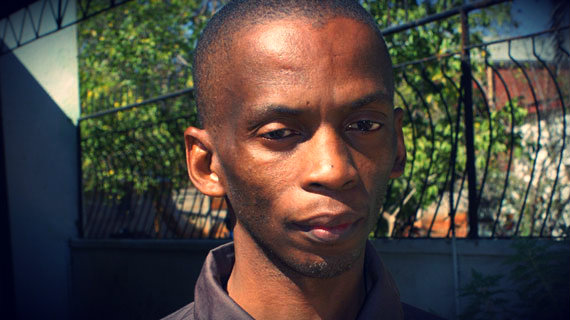
THIS week I continue with my discourse on the oxymoronic nature of Africa, a continent so rich and yet so poor.
Just as a means of comparison British Premier Football League clubs spent over £843 000 (roughly over $1,2 billion) during this transfer window in signing-on fees for new players.
This is over half of the $2 billion that China has promised Africa through an African Development Bank (AfDB) facility through which critical development projects will be financed.
Africa does have the potential to be a powerhouse but the reality is that currently the continent has to overcome a number of debilitating challenges in order to realise its potential.
Civil war and terror The continent has had to spend more time resolving conflicts than on economic development and just when it appeared that Southern Africa was becoming a haven of peace, the military in Lesotho thought otherwise with a coup that ditched the constitutionally legitimate government of the mountain kingdom.
Civil conflict in Libya, the Central African Republic and the terrorist threats of Boko Harram and al-Shabaab continue to be thorn in the flesh in Nigeria and Somalia. The Arab Spring appears to have been inconclusive in solving governance challenges in Egypt and Libya. These conflicts have severely affected the ability of African countries to focus on economic development.
The scourge of Ebola in West Africa has added to the plethora of challenges that the continent faces. It is, however, important for Africa to remind itself of the pledge that African leaders made in 2001 through the New Africa for Africa’s Development document which states: “Across the continent, Africans declare that we will no longer allow ourselves to be conditioned by circumstance. We will determine our own destiny and call on the rest of the world to complement our efforts”
Thirteen years later Africa appears to have forgotten this pledge and once again we find ourselves continuously being conditioned by our circumstances.
- Chamisa under fire over US$120K donation
- Mavhunga puts DeMbare into Chibuku quarterfinals
- Pension funds bet on Cabora Bassa oilfields
- Councils defy govt fire tender directive
Keep Reading
Victim The victim narrative which has pervaded the discourse of even the best African leaders and scholars needs to be replaced by pro-active actions premised on what Africa can do for itself not what the world can do for Africa.
It is folly to continue to blame colonialism or neo-colonialism for the underdevelopment in Africa even though these twin evils have contributed immensely to the historical impoverishment of the continent.
Which country for example did Iceland colonise or indeed Sweden, Norway or Denmark. These countries did not colonise any African country and yet their economies are comparatively far more diverse and stable than most of African economies.
Infrastructural development The Nepad document of 2001 correctly identified regional infrastructural development as a frontier of African growth and development.
Africa needs to invest in the development of energy, water, road and rail infrastructure at regional level so as to catalyse economic development and investment thereby creating jobs and opportunities for her people.
These infrastructural projects need to be carried out at regional and sub regional level so as to broaden the productive and market base of the continent. Funding for such initiates could take the form of the following :
Private sector investment in infrastructure and principally exploration of various models of private–public partnerships including build own operate, build operate and own, build own operate and transfer. African countries need to create the necessary enabling regulatory frameworks to make this a reality.
AfDB The AfDB could play a key role in the financing of huge sub regional infrastructural projects. The Chinese government has already unveiled a facility with the bank to fund projects in Africa as of 2014.
World Bank and multilateral institutions The World Bank is providing some funding for the 14 billion dollar Inga 111 Dam in the Democratic Republic of Congo which is expected to provide electricity for other southern African countries such as South Africa and potentially Zambia and Zimbabwe (The Africa Report, July 2014). There is need for such regional energy and transport infrastructure projects in Africa.
Mozambique is currently sitting on some of the world’s best coal reserves in terms of quality but the poor transport infrastructure in the country is hindering optimum utilisation of the mineral.
The imperative of infrastructural development is undergirded in the Nepad blueprint of 2001 which notes that “energy, transport, telecommunications and water projects are crucial to Africa’s integrated development”.
The challenge of infrastructural development cannot and should not be ignored, but there are also issues of funding countries or institutions gaining more from the infrastructural projects than the actual “beneficiary” countries.
This has been the case with the Chinese “infrastructure for minerals” approach where African countries have lost more than what they have gained through poorly negotiated deals which have seen African countries having infrastructure built, but largely by Chinese companies using Chinese labour and at the end of the day, very little money finding its way into the African countries.
In spite of these multi-faceted challenges yes, Africa can make it.
Mayibuye!
Dumisani Nkomo is an activist, social entrepreneur and chief executive officer of Habakkuk Trust. He writes in his personal capacity.










